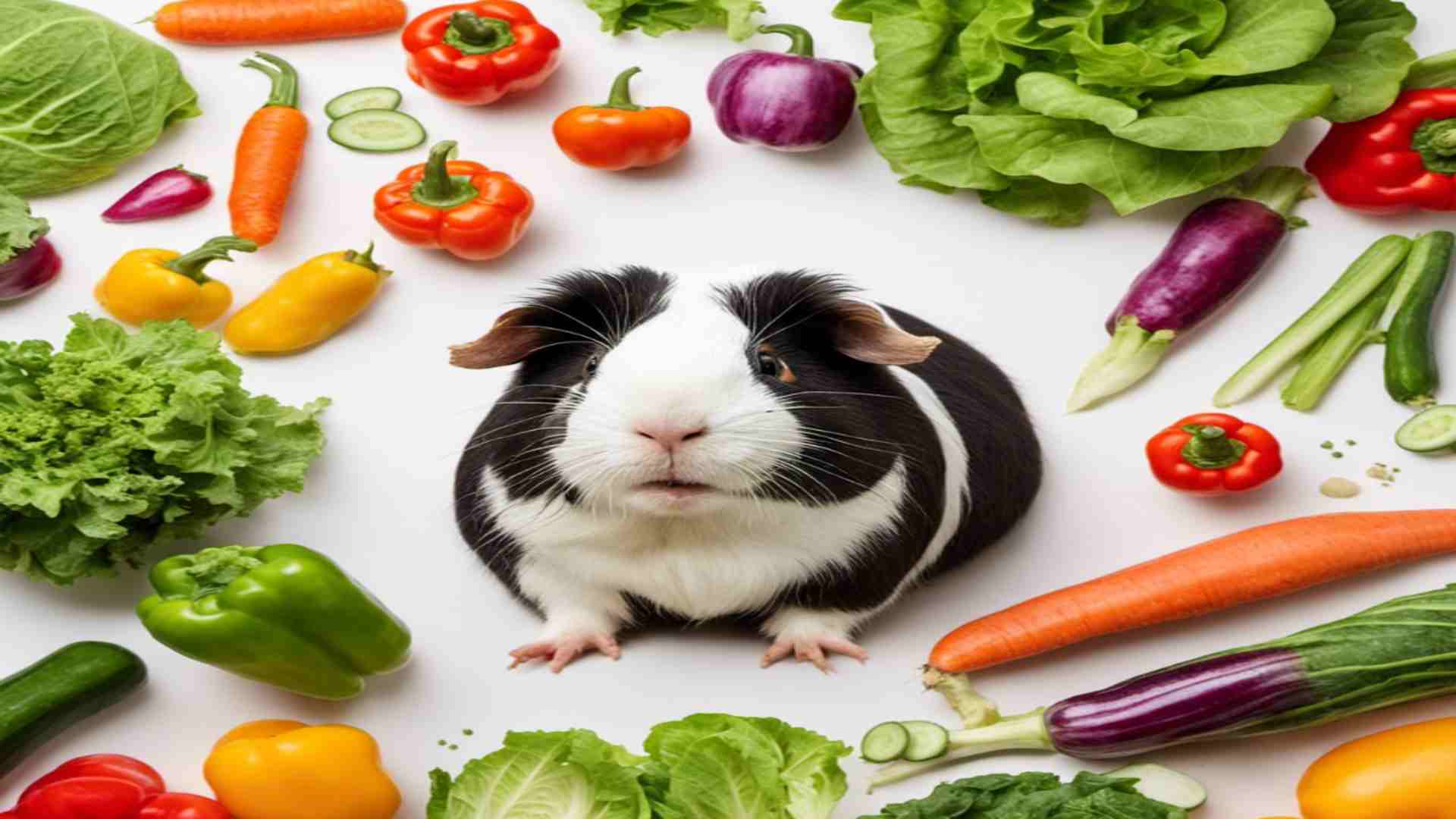Do ferrets eat mice? The answer to this question may surprise you. Ferrets are actually not natural predators of mice. In the wild, they usually prey on small animals like rabbits, birds, and fish, but do ferrets eat mice? is it part of their diet?
Ferrets can and do eat mice. While not their primary diet, ferrets will feast on small rodents like mice if possible. It is important to remember that while some pet ferrets may display a taste for small rodents, they should not be fed rodents as their primary food source.
But there is much more to know about a ferret’s diet than just that! should you feed your ferret with raw or cooked meat? What other animals do ferrets eat? We’ll answer all your questions and more in this article.
Keep reading to find out!
When can I feed my ferret with mice?
Your ferret will love to eat fresh, live mice as part of its diet. While it may take some time for your ferret to get used to eating mice, they can provide a nutritious and enjoyable snack for your pet. When feeding mice to your ferret, there are several considerations to remember, such as when and how often you should feed them.
The best time to feed a mouse to your ferret is when it is between 6-10 weeks old. At this age, the mouse is less likely to be too large or difficult for your ferret’s teeth and jaws; anything larger could pose a choking risk. In terms of size, the mouse should be just slightly bigger than the size of your pet’s head.
It’s important that you don’t overfeed your pet with mice; typically, two or three small ones per week are enough for most ferrets. You could even try adding some variety by offering different types of prey, like chicks or fish, occasionally.
Make sure that you also know what type of animal you are giving your pet. Some mice have fur that can cause an allergic reaction in some animals if not properly handled first by yourself before being fed to the ferret.
Can ferrets eat mice?
Yes, ferrets can eat mice. In the wild, ferrets are natural predators of mice and small rodents.
However, as pets, it is not recommended to feed your ferret a diet consisting solely of mice. It is essential to provide a balanced diet that includes commercial ferret food and occasional treats like mice or other small animals.
How much food should you feed your ferret?
When considering how much food to feed a ferret, it is recommended to feed them a diet rich in protein, with approximately 32-38% protein content. Adult ferrets typically consume around 1/4 to 1/2 cup of high-quality ferret food per day, divided into two meals. It’s essential to consult with a veterinarian for specific feeding recommendations for your ferret.
Do ferrets eat rats?
While ferrets can consume both rats and mice, it is preferable to provide them with pre-killed mice if you are also going to include rats in their diet for nutritional and digestion purposes.
Rats are larger than mice and can pose a choking hazard if not eaten correctly. While pre-killed rats are generally easier to digest, they should still be offered in moderation due to their high fat content.
How often should you feed your ferret with mice?
Ferrets are carnivores, which means that they need a regular diet of animal proteins to stay healthy. Mice can make excellent sources of protein in a ferret’s diet, but they should be fed only once a week or less.
It is important to ensure that the mice you provide your ferret are as fresh as possible. Ideally, you should feed them alive (or pre-killed) so that your pet can hunt them down and play with them if desired.
You should also provide a variety of food choices for your ferret, including different types of insects, eggs, and meat substitutes.
In terms of the number of mice you should offer your ferret per feeding session, the general rule is not to exceed the mouse equivalent in size of half the length and width of your pet’s head combined.
When properly prepared and offered in controlled amounts, mice can be an excellent source of nutrition for ferrets. They offer unique variety to their diets and entertainment when playing with live prey or running around with ones pre-killed/fed them like treats.
Mice are an essential part of a ferret’s diet
Mice are a fundamental part of the ferret diet, providing an essential source of nutrition for these animals. Unlike other members of the Mustelidae family, ferrets need to feed more regularly, and it is easy to forget that they require a balanced and structured diet.
Mice make up a large part of their nutritional needs. High in protein, mice offer essential sources of energy and help to maintain the ferret’s physical condition following their energetic lifestyle.
In addition, small mammals such as mice contain nutrients that a ferret’s body can absorb quickly, allowing them to replenish their supply on a regular basis.
Apart from being a source of nutrition for the ferret, mice also provide essential mental stimulation. Their irregularity in movement stimulates curiosity in your pet and encourages playtime outside the safety of its cage or den. This is as beneficial to your pet’s emotional health as having a meal that satisfies its appetite is beneficial to physical health.
When looking for food sources for your pet ferrets, be sure to look for mice with freshness and quality assured. Many breeds thrive when given raw frozen meals or pre-killed options (with any feathers/edible fur securely removed).
As well as nourishing your pets with adequate healthcare complexes such as iron and calcium supplements, you could even promote activity with treat toys stuffed full of favorite food items! Healthy minds lead to healthy bodies; look after both!
Can I feed my ferret live mice?
No, you should not feed live mice to your ferret. Live mice can be aggressive and could bite or scratch your pet, causing pain and potential injury.
Even if the mouse does not attack, ferrets have an instinctive urge to hunt their prey which can lead them to become overly excited or stressed, causing health problems for the animal.
Instead, choose commercial diets specifically formulated for ferrets. These products typically come in pellet form and are already filled with essential vitamins and nutrients they need to stay healthy.
Additionally, many of them provide enrichment benefits such as crunchy texture, enticing smells, and flavors, or even treats like freeze-dried meats! So consider these safe alternatives when feeding your furry friend.
The benefits of feeding ferrets mice
While it may not be the most appetizing meal for humans, there are actually many benefits to feeding ferrets mice.
- Mice are an excellent source of protein, which is essential for the growth and development of these small carnivores.
- The bones and fur of mice can provide much-needed calcium and other nutrients that ferrets may not get enough of in their regular diet.
- The high-fat content in mice helps to keep ferrets’ energy levels up and can help them maintain a healthy weight.
What other animals do ferrets eat?
Ferrets are carnivores, and their diet revolves around meat. In the wild, they would eat small mammals like rabbits, rodents, and birds. Domestic ferrets typically eat a diet of chicken or turkey, raw meat, or high-quality ferret kibble.
While ferrets enjoy eating small prey, they are not limited to only eating mice. In fact, a diet that consists primarily of rodents can be harmful to your ferret’s health.
A good rule of thumb is to make sure that rodents only make up about 20% of your ferret’s diet.
If you’re wondering what the other 80% should be, the answer is a mix of protein-rich foods like chicken, turkey, fish, and eggs. You can also supplement your ferret’s diet with occasional treats like raw meat or high-quality ferret kibble.
Where can I buy frozen mice for my ferret to eat?
If you’re looking to buy frozen mice for your ferret, there are a few options available to you. You can purchase them online from sites like Amazon or eBay, or you can find them at some pet stores.
When purchasing frozen mice, look for high-quality products safe for your ferret. Ensure the product is made from fresh ingredients and contains no preservatives or fillers. Additionally, ensure the package notes how the products were raised and whether they were ethically sourced.
Read also: What Do Ferrets Eat? Ultimate Guide to Their Diet
How do I feed ferrets mice?
Ferrets are carnivores and need lots of protein in their diets. As such, one of the best sources of protein for ferrets is mice. For most ferrets, this is an exciting way to satisfy their dietary needs and desire for something different.
When feeding mice to your ferret, it is important to ensure that the mice you choose are smaller than the size of your ferret.
If the mouse is bigger, your ferret cannot eat it safely. Additionally, make sure you choose a farm-raised mouse species, as wild mice may contain parasites or diseases that could harm your pet.
When introducing live prey, be sure to do so under supervision. Never leave your ferret unsupervised with a live rodent, as they can become aggressive or hurt it by playing too roughly.
Also, remember that even though your ferret may love eating prey items like mice, they can still be startled and should never be exposed to them while they’re sleeping or resting without proper supervision.
How much does it cost to feed ferrets with mice?
The cost of feeding ferrets with mice will vary depending on the type, quantity, and size of mice you are providing. On average, it costs approximately $50-$75 a month to solely feed a ferret with live mice.
However, the overall cost may be lower if you supplement your ferret’s diet with other food, such as dry ferret food.
It is important to remember that larger adult mice can feed more than one ferret for several days, so the number of rodents needed may be reduced over time. Additionally, depending on where you buy the mice from and how many you purchase at once, some discounts may be available.
For example, buying two dozen or more feeders may reduce the cost significantly when purchasing from an online vendor instead of a pet store. Offerings vary, but typically frozen mice are also available, and they come in various sizes appropriate for different-sized ferrets.
Feeding your ferrets fresh or frozen mouse prey has its benefits – it offers superior nutrition and helps them get acclimated to hunting naturally while satisfying their dietary needs.
What do I do if my ferret won’t eat mice?
If your ferret doesn’t eat mice, you may need to try a few different techniques to encourage them to do so.
- First, make sure that their environment is comfortable and that they have plenty of space. Ferrets are naturally territorial and can become anxious in cramped conditions. Ensure they have plenty of interesting toys and activities – this will help to keep them mentally stimulated, which can sometimes be enough for them to forget about their aversion to mice.
- Secondly, try offering the mice in various forms, fresh or frozen, cooked or raw, whole or chopped into small pieces. It could be that the way you’re presenting the food simply isn’t appealing enough. If nothing else works out, consider switching from mice as the primary source of protein in their diet and opt for something else like fish or chicken until they become more accustomed to eating mice.
- Finally, talk to a vet about other possibilities, such as introducing supplements into their diet that could increase their appetite for mice. Things like omega-3s or probiotics can often do the trick!
Pro tip: If you want to feed your ferret with live mice, don’t forget to check your local laws about live feeding stock.
Summary
Before we move on to the conclusion, we’ve summarized this article into a short list of key points for you to remember:
- Don’t forget to check your local laws about the live-feeding stock.
- On average, it costs approximately $50-$75 a month to feed a ferret.
- If your ferret doesn’t eat mice, try offering them in different forms, switch from mice as the primary source of protein in their diet, or introduce supplements into their diet.
- Supervision is key when introducing live prey to your ferret.
Conclusion
In the wild, they usually prey on small animals like rabbits, birds, and fish. This means that while it is theoretically possible for a ferret to eat a mouse, it is not part of its regular diet. However, if there is an opportunity to catch a mouse and it looks like an easy meal, your ferret will probably take advantage!
Want to learn more about ferrets?
Ready to boost your knowledge to the next level? If so, check out the articles below:
- 7 Things to Do With Ferrets on Vacation
- Can Ferrets Live With Guinea Pigs? (Explained)
- How Much Salmon Oil for Ferrets? (The Definitive Guide)





